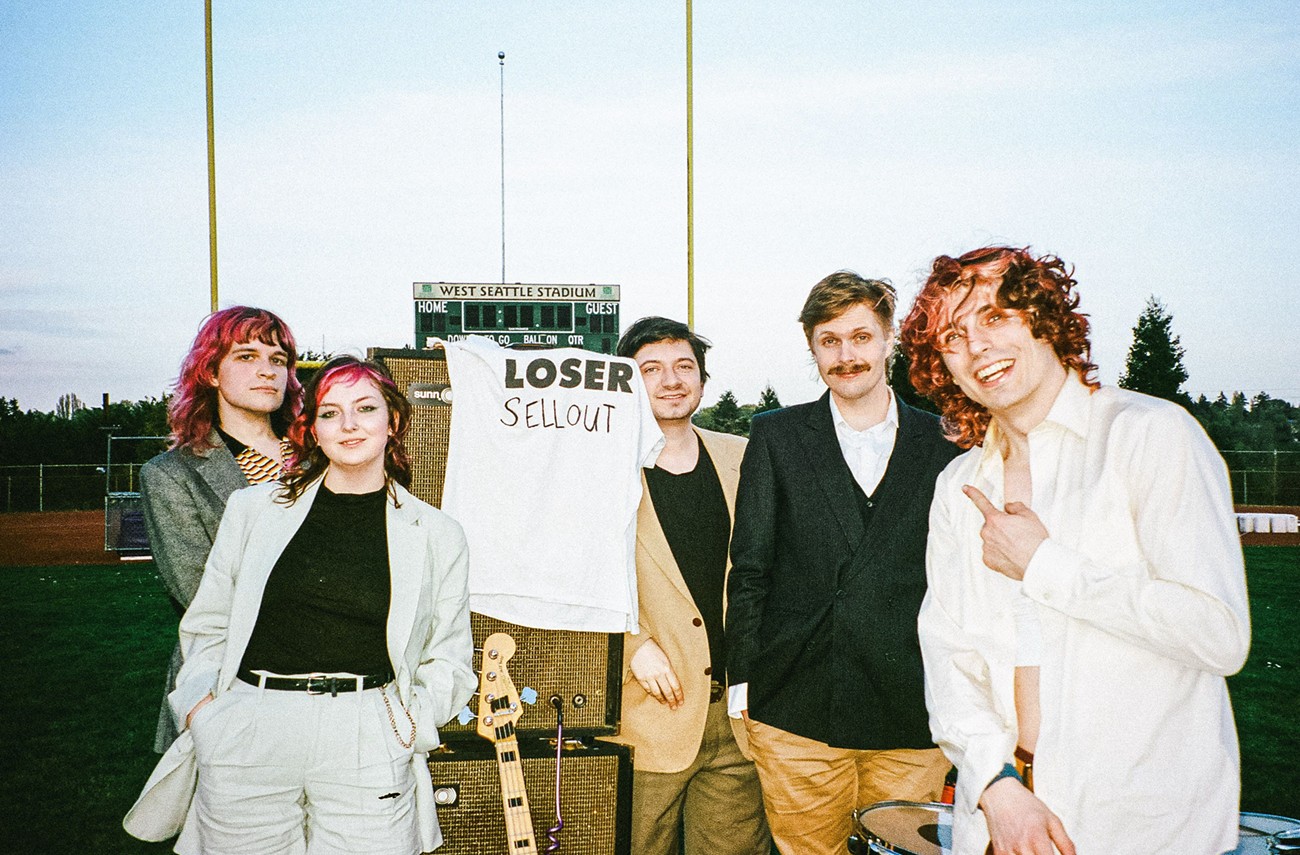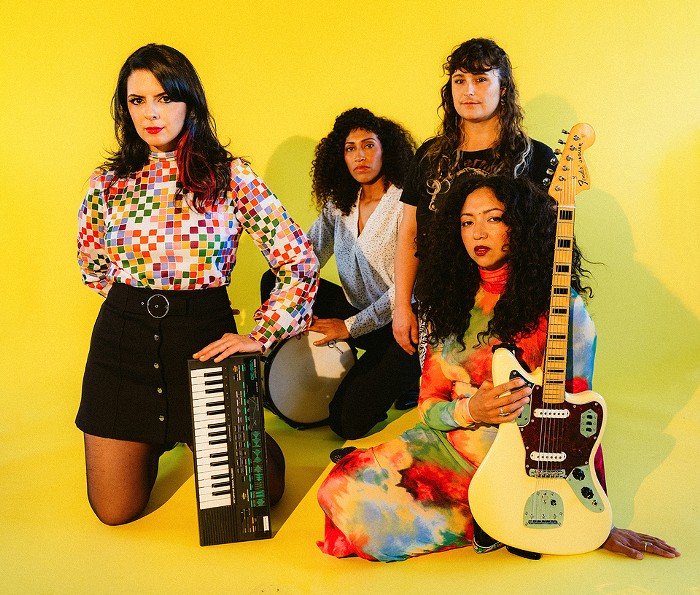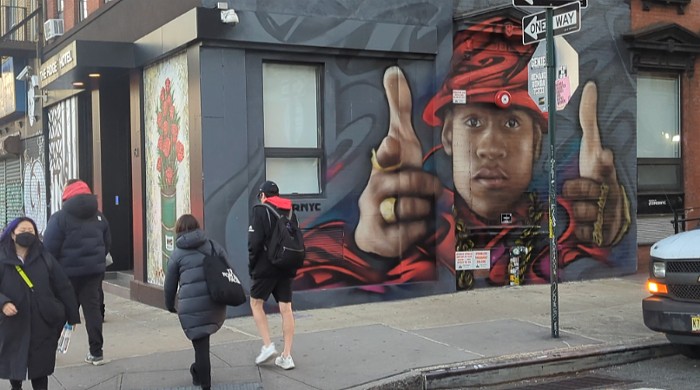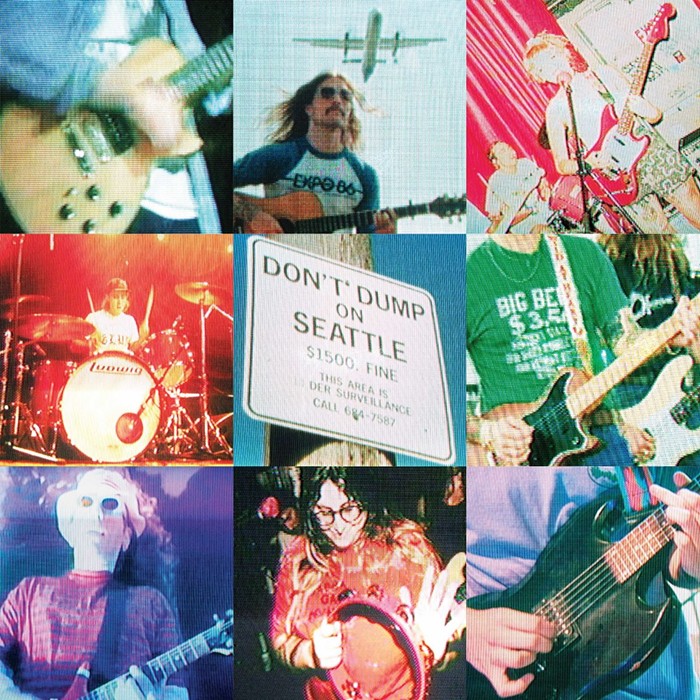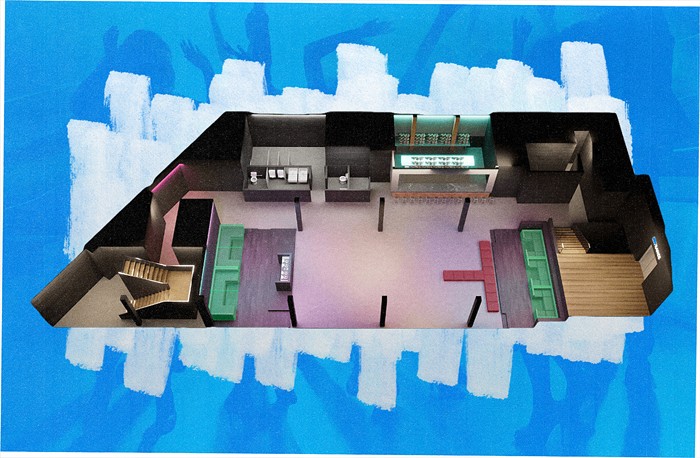Last month, while on a self-booked national tour, nature asked Seattle band Beautiful Freaks a question: Tornado or tropical storm?
It was 4 am in Greenville, North Carolina. While the band’s bassist Tony LeFaive slept in the van, and the rest of the musicians slept in a house that a showgoer was nice enough to let them stay in for free, a tornado began to form. It touched down within five miles of the house. Beautiful Freaks could have left. But the route to their next show in Asheville, North Carolina would be through Tropical Storm Debby. Hearing the tornado and seeing the sky move convinced the band to brave Debby.
“Once we hit those mountains, it broke, but driving through all that was very scary,” said guitarist and vocalist James Bonaci over the phone. “We luckily made it safe. But the thing is, that you shouldn’t have to [risk it].”
While it shouldn’t be a serious deal to cancel one or two shows due to treacherous weather, Bonaci explained that’s the reality for Beautiful Freaks and similar independent bands. Basic expenses of touring, like gas, food, and lodging are way up, and the margins are thin. They can’t afford to lose $200 to $400 on a show and merch sales, or spend $100 for a few hours at an Econo Lodge. They’ve got a van to gas and five people to feed.
To offset these growing logistical costs, Sonic Guild Seattle has launched a “first-of-its-kind” pilot grant program called Tour Support, a $36,000 pot of money the nonprofit will give to touring Seattle-area bands next year.
Sonic Guild Seattle already supports musicians on a nomination basis (last year, 10 artists received $10,000 in unrestricted grant funds) and Executive Director Ben London saw Tour Support as an opportunity to fund one of the last reliable ways musicians can make money, connect with new audiences, and build sustainable careers.
“We wanted to make sure we were spreading this around, and it wasn’t just going to a couple artists,” says Ben London, executive director of Sonic Guild Seattle. “That’s enough to put gas in your car, or enough to cover a hotel room.”
The first round of applications is now open and closes on November 1. Artists and bands are eligible if their members are 21 and older, (primarily) live within 90 miles of Seattle, and are actively building full-time music careers. Panels of Seattle music industry figures will evaluate each application on the basis of artistic merit, tour integrity, and the potential impact on the artist’s career. Winners will receive $150 a show for up to 10 shows, which the Guild will distribute in three $12,000 grant cycles next year, enough to subsidize 240 performances. Eligible tours must span three dates and cover at least 250 miles.
London began floating the idea with funders when he saw bands who were presented with career opportunities, such as European tours, resort to selling couches and music equipment to afford plane tickets. He also heard from a Black artist who drove hours to pay for a hotel room in Portland because they felt unsafe staying in the small Oregon town they’d performed that night.
After London shared his idea with Joey Dimarco, a local rep for Tito’s Handmade Vodka, Dimarco then nominated Sonic Guild for an employee-directed grant program. The money from Tito’s will fund the pilot for a year, but London’s goal is to do this every year.
“One of the reasons this really came up was in understanding how the music marketplace has changed so much in the last bunch of years,” London said. “Whereas it used to be, you toured to sell records as a market, now you basically put out records as marketing to sell concert tickets.”
As any musician will tell you, streaming has taken over the industry and streaming doesn’t pay the bills. A 2018 study from Citigroup found that musicians only received 12 percent of the total revenue from their music in 2017; adding insult to injury to small artists, Spotify demonetized all songs with fewer than 1,000 streams this April. According to the United Musicians and Allied Workers union, that’s roughly 86 percent of songs on the platform. By demonetizing these songs, the company saved money without stealing much from any single musician. Spotify only pays artists about $0.003 a stream. At that top rate, 1,000 streams isn’t enough for a slice of pizza.
That leaves ticket and merchandise sales as a band’s most profitable opportunity. But as the old saying goes, it takes money to make money. Before bands make a cent, they may sink thousands on plane tickets, a van rental fee, vinyl records, cassette tapes, and T-shirts. Taylor Swift may rake $1 billion on a tour, but all the average, working-class band, can hope for is that they’ll make that money back on the road. In practice, many are happy if they don’t lose money. An internal survey from Sonic Guild Seattle found 76 percent of Washington artists turned down “impactful touring opportunities” due to these high costs. (For instance, Beautiful Freaks turned down a show in Mexico City because they couldn’t afford to travel.)
Alie Renee Byland, a Seattle-based singer-songwriter who performs as BYLAND, is off on an 11-date tour on the East Coast this week, playing in cities like Burlington, New Haven, Connecticut, and Pittsburgh.
Touring is a treasured experience for Byland, but the expense is massive. To even have the opportunity, Byland lives a flexible life with five flexible jobs. She plays music at nursing homes, bartends, and works for a company that helps seniors transition to assisted living.
For two weeks on the road with three people, Byland budgeted $1,200 for airfare, $1,200 for luggage (that includes equipment), $1,000 for the rental car, $750 for gas and tolls, $600 in hotels (most dates they’re crashing with friends and family), $1,500 to pay the band, and $1,200 for meals. Byland skimps on the little luxuries—ditching to-go coffee for a carry-along Aeropress, booking hotels with free breakfast, and replacing eating out with a sandwich cooler and bag salads. The only way BYLAND was able to tour their record Heavy for a While, and buy vinyl to sell at shows last year, was with a $10,000 grant from the Sonic Guild.
“That’s how you make money—investing in your projects, and banking on yourself—and having someone to help with that is humungous,” Byland says. “It’s kind of the difference between being able to tour and not for some people.”
In the 15 years Spirit Award’s Daniel Lyon has toured, he’s learned to expect the unexpected expenses. On a European tour last year, that added up: He had to pay for a last-minute ticket for a new tour manager and about €200 (about $220) in unanticipated French tolls. Fortunately, many venues in mainland Europe tend to feed and lodge bands for free (some countries like Canada and the UK will even subsidize touring bands), but still the band ended the tour at a loss. Nothing too crazy, he added.
“The joke is that the van is the only member of the band that gets paid,” he says. Lyon says anything to offset the cost helps because bands can’t forecast when tours will flourish and flounder. An extra $150 is a guarantee that, at the very least, they can afford a place to sleep.
“Anybody who is doing this work, who’s at least trying to make things better for musicians, it’s great,” he says.
